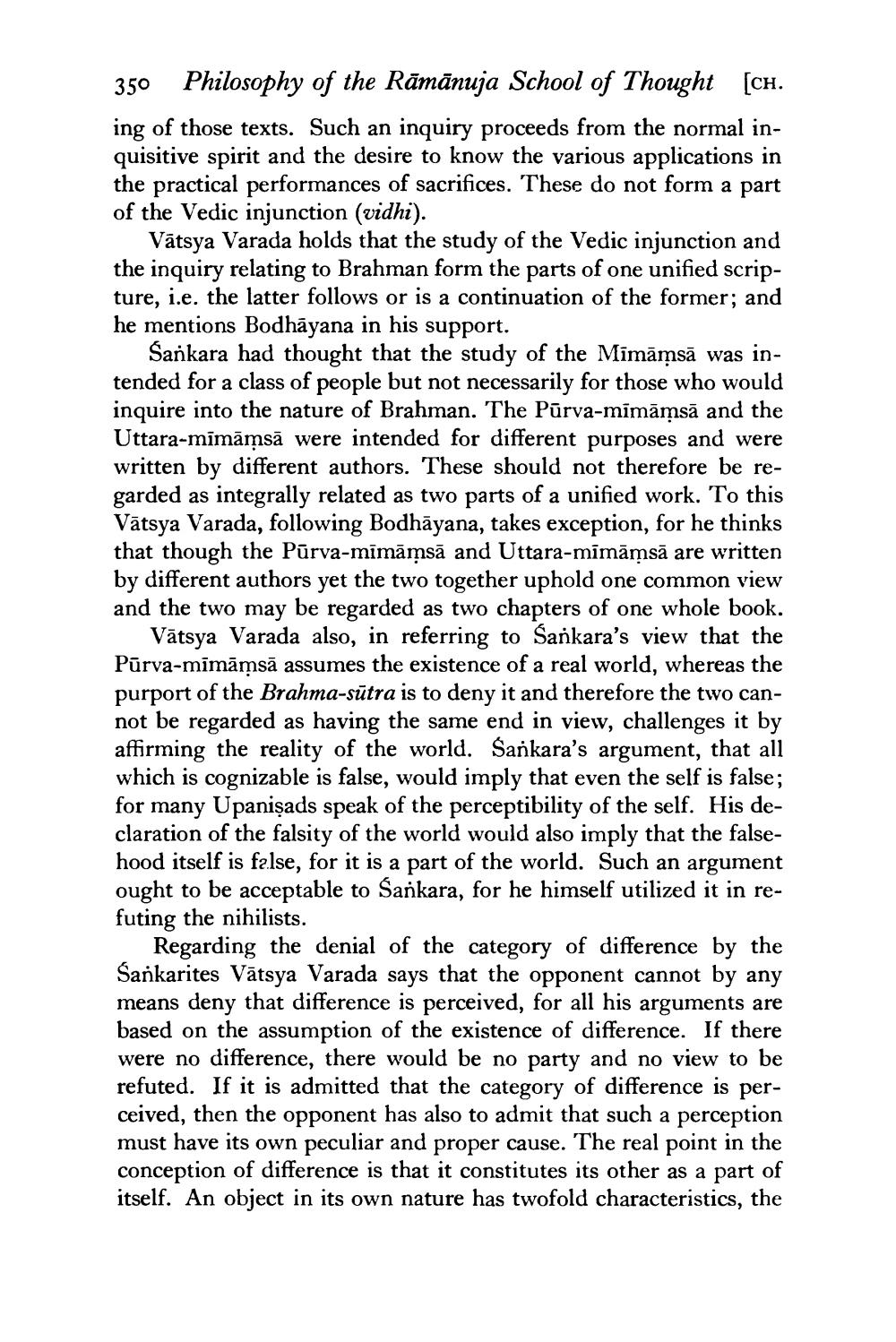________________
350
Philosophy of the Rāmānuja School of Thought [CH.
ing of those texts. Such an inquiry proceeds from the normal inquisitive spirit and the desire to know the various applications in the practical performances of sacrifices. These do not form a part of the Vedic injunction (vidhi).
Vātsya Varada holds that the study of the Vedic injunction and the inquiry relating to Brahman form the parts of one unified scripture, i.e. the latter follows or is a continuation of the former; and he mentions Bodhāyana in his support.
Sankara had thought that the study of the Mimāmsā was intended for a class of people but not necessarily for those who would inquire into the nature of Brahman. The Pūrva-mīmāmsā and the Uttara-mīmāmsā were intended for different purposes and were written by different authors. These should not therefore be regarded as integrally related as two parts of a unified work. To this Vātsya Varada, following Bodhāyana, takes exception, for he thinks that though the Pūrva-mīmāmsā and Uttara-mīmāmsā are written by different authors yet the two together uphold one common view and the two may be regarded as two chapters of one whole book. Vātsya Varada also, in referring to Sankara's view that the Pūrva-mīmāmsā assumes the existence of a real world, whereas the purport of the Brahma-sutra is to deny it and therefore the two cannot be regarded as having the same end in view, challenges it by affirming the reality of the world. Sankara's argument, that all which is cognizable is false, would imply that even the self is false; for many Upanisads speak of the perceptibility of the self. His declaration of the falsity of the world would also imply that the falsehood itself is false, for it is a part of the world. Such an argument ought to be acceptable to Sankara, for he himself utilized it in refuting the nihilists.
Regarding the denial of the category of difference by the Sankarites Vātsya Varada says that the opponent cannot by any means deny that difference is perceived, for all his arguments are based on the assumption of the existence of difference. If there were no difference, there would be no party and no view to be refuted. If it is admitted that the category of difference is perceived, then the opponent has also to admit that such a perception must have its own peculiar and proper cause. The real point in the conception of difference is that it constitutes its other as a part of itself. An object in its own nature has twofold characteristics, the




